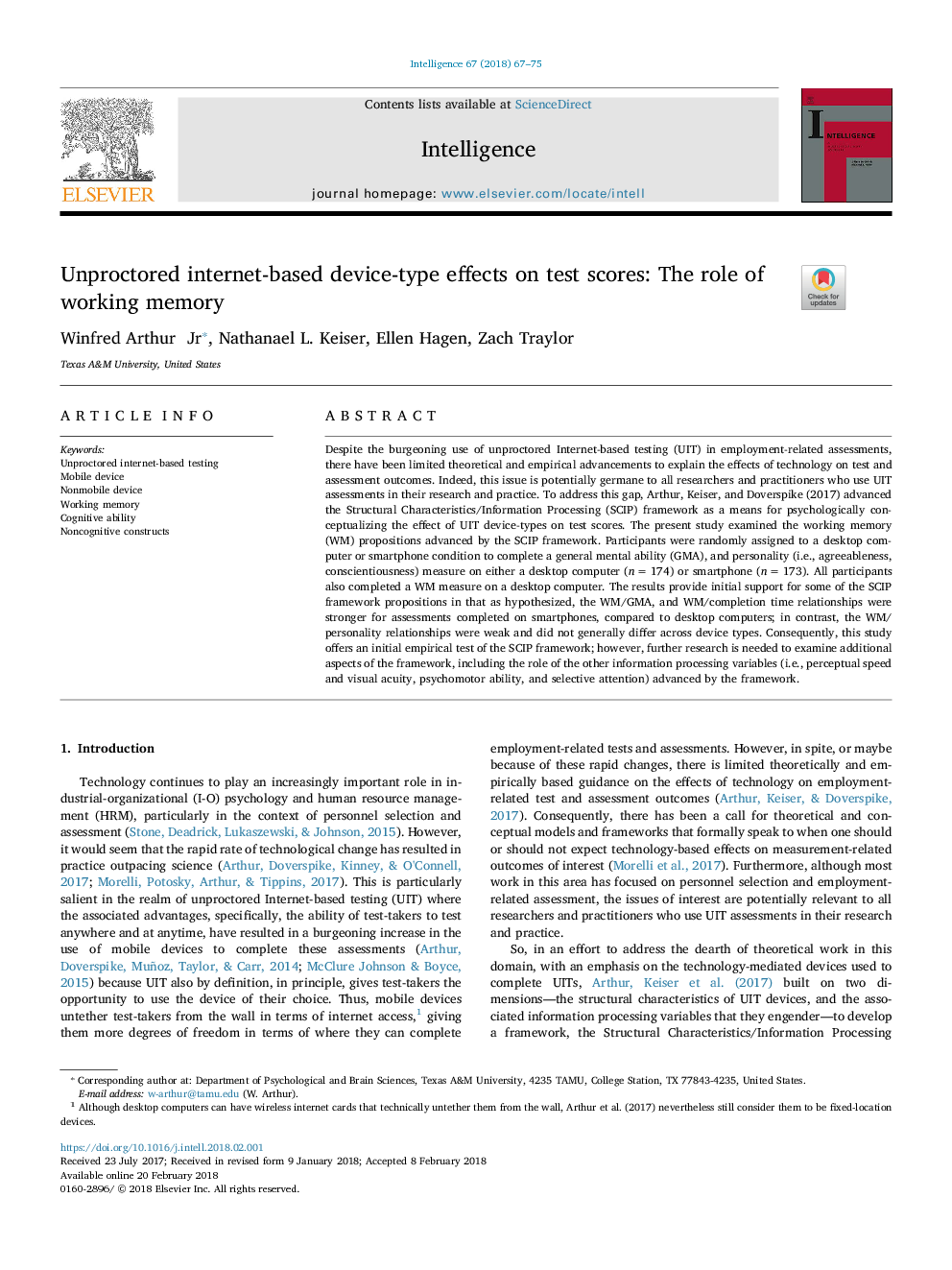ترجمه فارسی عنوان مقاله
اثرات نوع دستگاه مبتنی بر اینترنت بدون آزمون بر روی نمرات آزمون: نقش حافظه کاری
عنوان انگلیسی
Unproctored internet-based device-type effects on test scores: The role of working memory
| کد مقاله | سال انتشار | تعداد صفحات مقاله انگلیسی |
|---|---|---|
| 125580 | 2018 | 9 صفحه PDF |
منبع

Publisher : Elsevier - Science Direct (الزویر - ساینس دایرکت)
Journal : Intelligence, Volume 67, MarchâApril 2018, Pages 67-75
ترجمه کلمات کلیدی
تست مبتنی بر اینترنت بدون تست، دستگاه موبایل، دستگاه غیرمجاز، حافظه کاری، توانایی شناختی، سازه های غیر شناختی،
کلمات کلیدی انگلیسی
Unproctored internet-based testing; Mobile device; Nonmobile device; Working memory; Cognitive ability; Noncognitive constructs;

